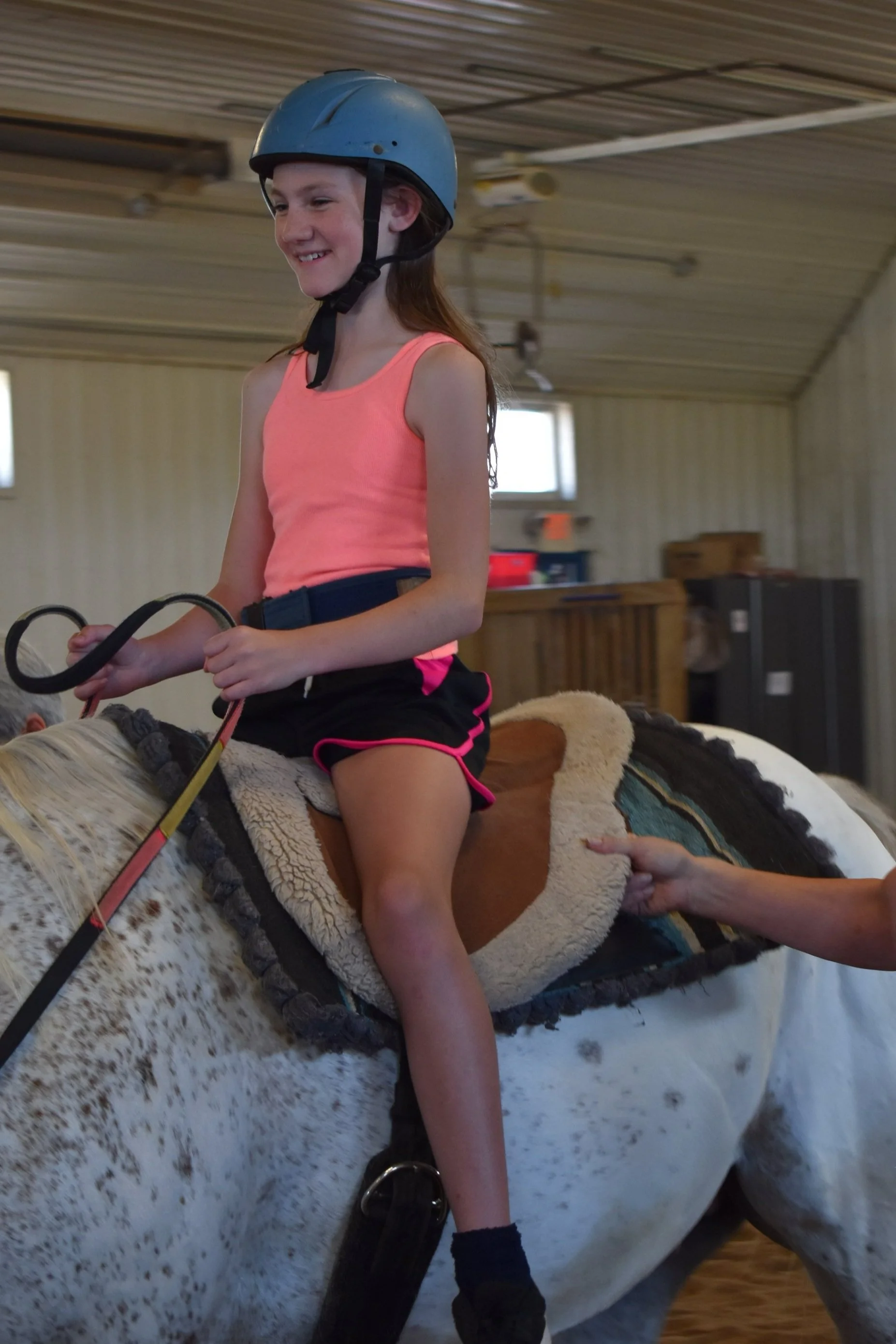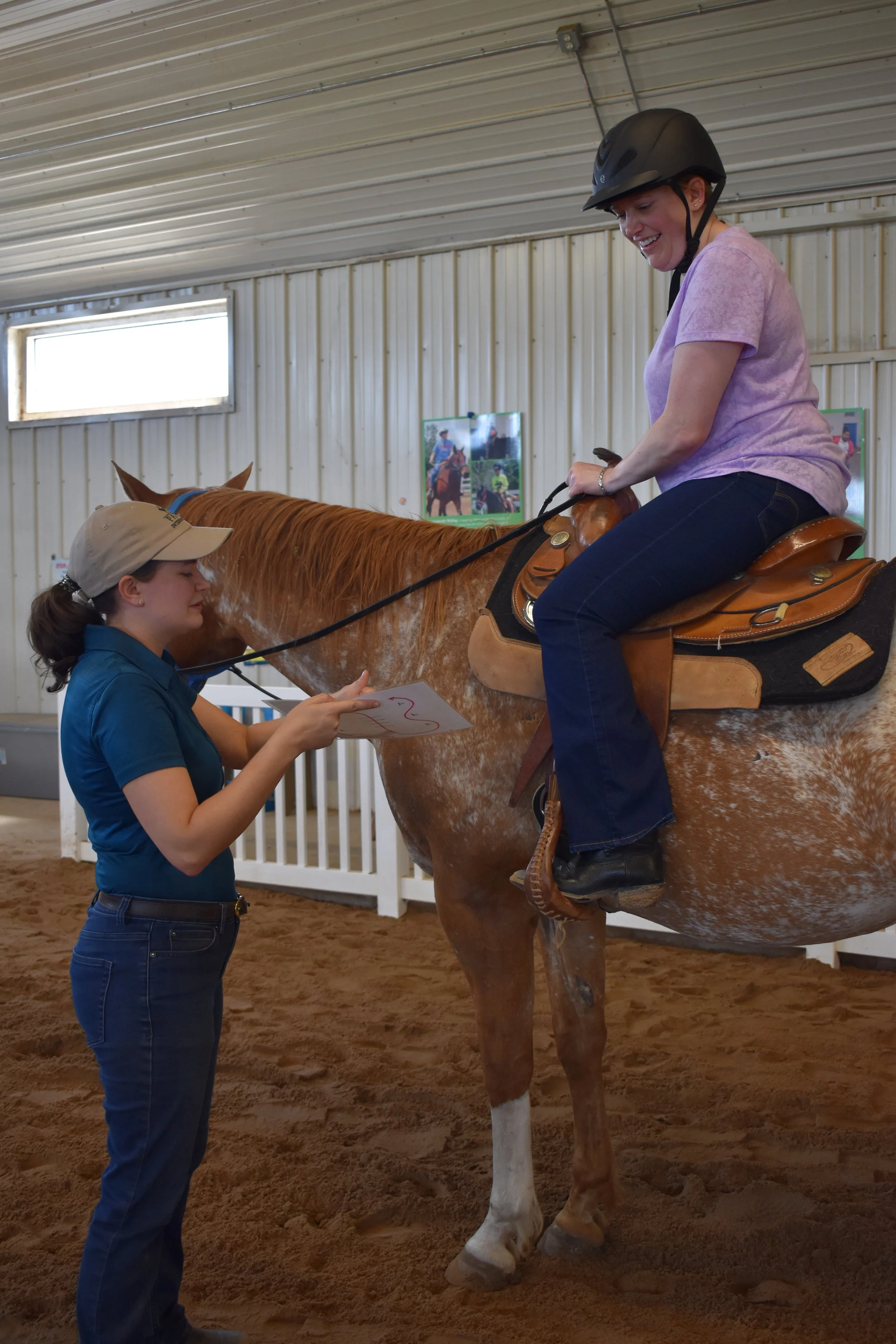
Adaptive Riding
Adaptive riding is taught by a PATH Certified Therapeutic Riding Instructor. This program focuses on teaching beginner horsemanship skills in a small group format. Riders are stimulated and challenged by the sensory motor input from the horse, while working on tasks that align with their abilities, goals, and interests.
Riders may learn skills such as grooming and tacking their horse, groundwork skills, and using reins while also improving flexibility, balance, and strength. Riding also promotes confidence and self-esteem.
A typical adaptive riding session requires participants to use sequencing and pattern recognition skills to follow a set of instructions. Riders then must use motor planning, spatial perception, and visual recognition to successfully complete tasks. They develop problem-solving skills when faced with an obstacle or movement that does not go as intended.
Eligibility requirements for participation in adaptive riding include:
Independent sitting
Head control
No orthopedic contraindications or mobility restrictions requiring direct therapist intervention
Physiologically stable
““Going to Exceptional Equestrians is the highlight of my week. Riding helps both my body and mind. It allows my body to move more freely while giving me joy in feeling like I’m free like an eagle. The friendships I’ve developed are priceless.””
Elizabeth is certified through PATH, Intl as a Certified Therapeutic Riding Instructor. She is a graduate of UW-River Falls with a B.S. in Animal Science and an emphasis in Equine Science.
She started riding when she was 14 through 4H and is experienced in western and English riding styles, as well as some driving. Her favorite riding style is dressage.





